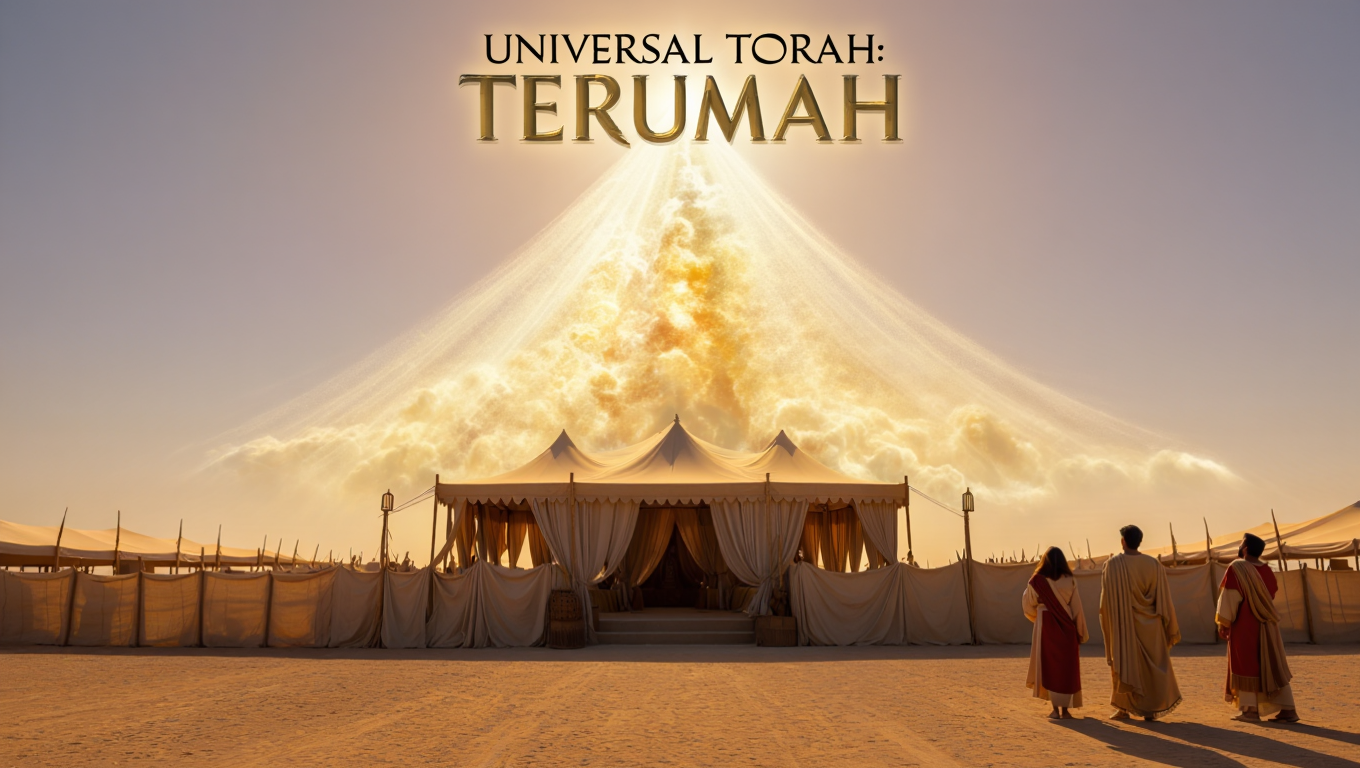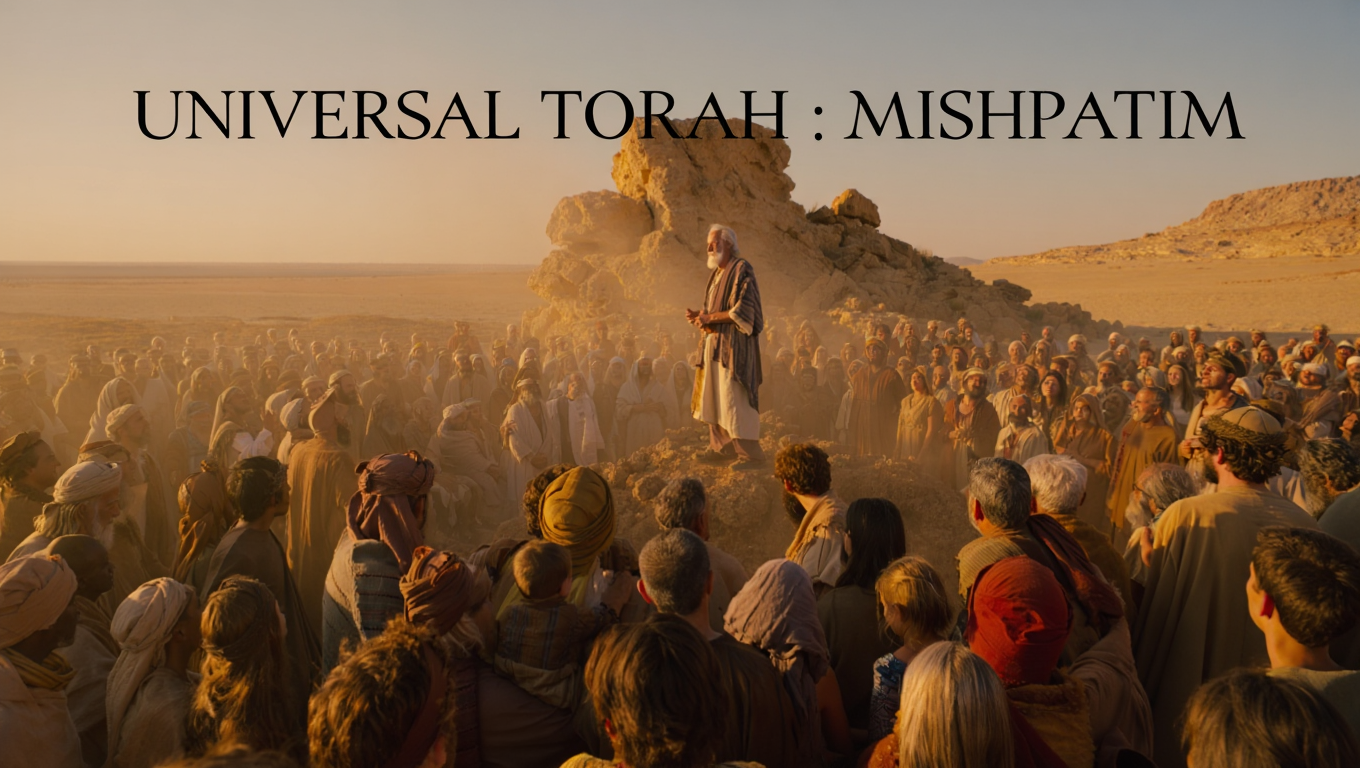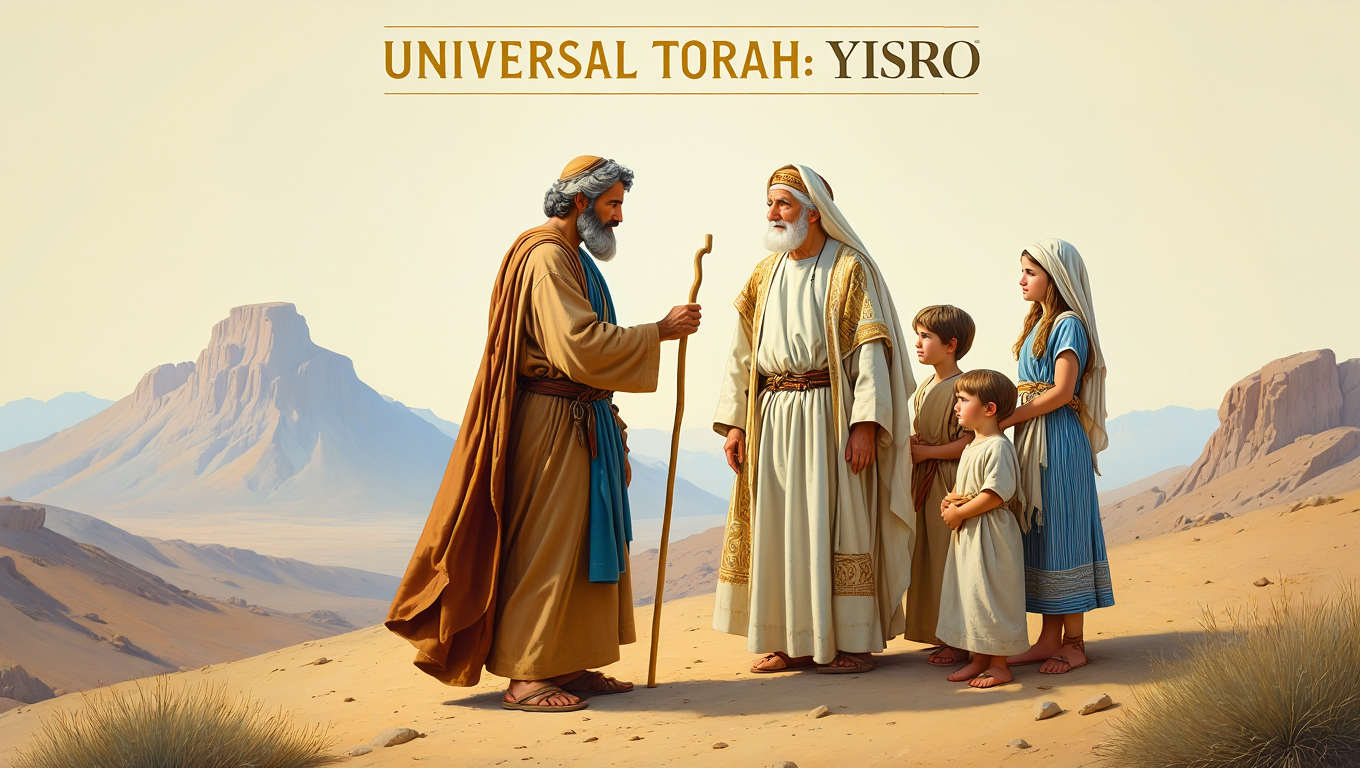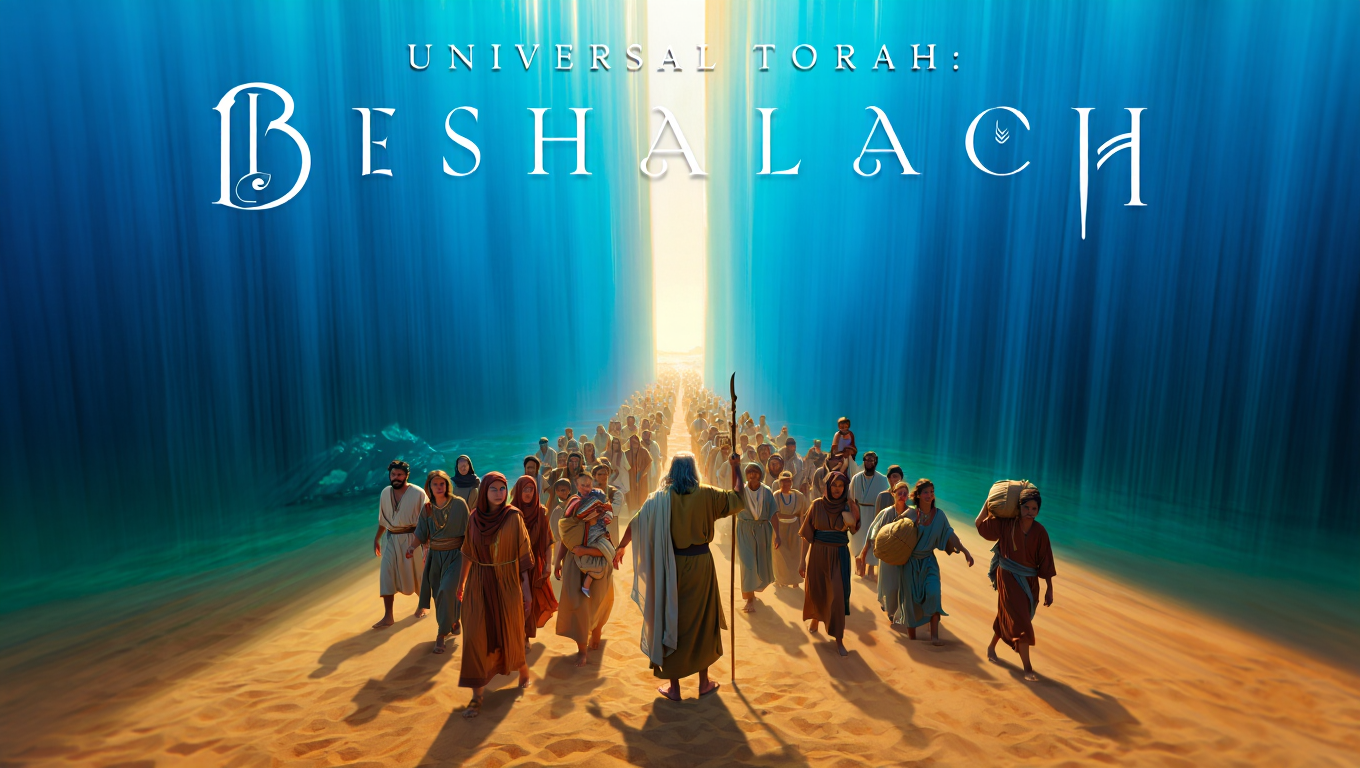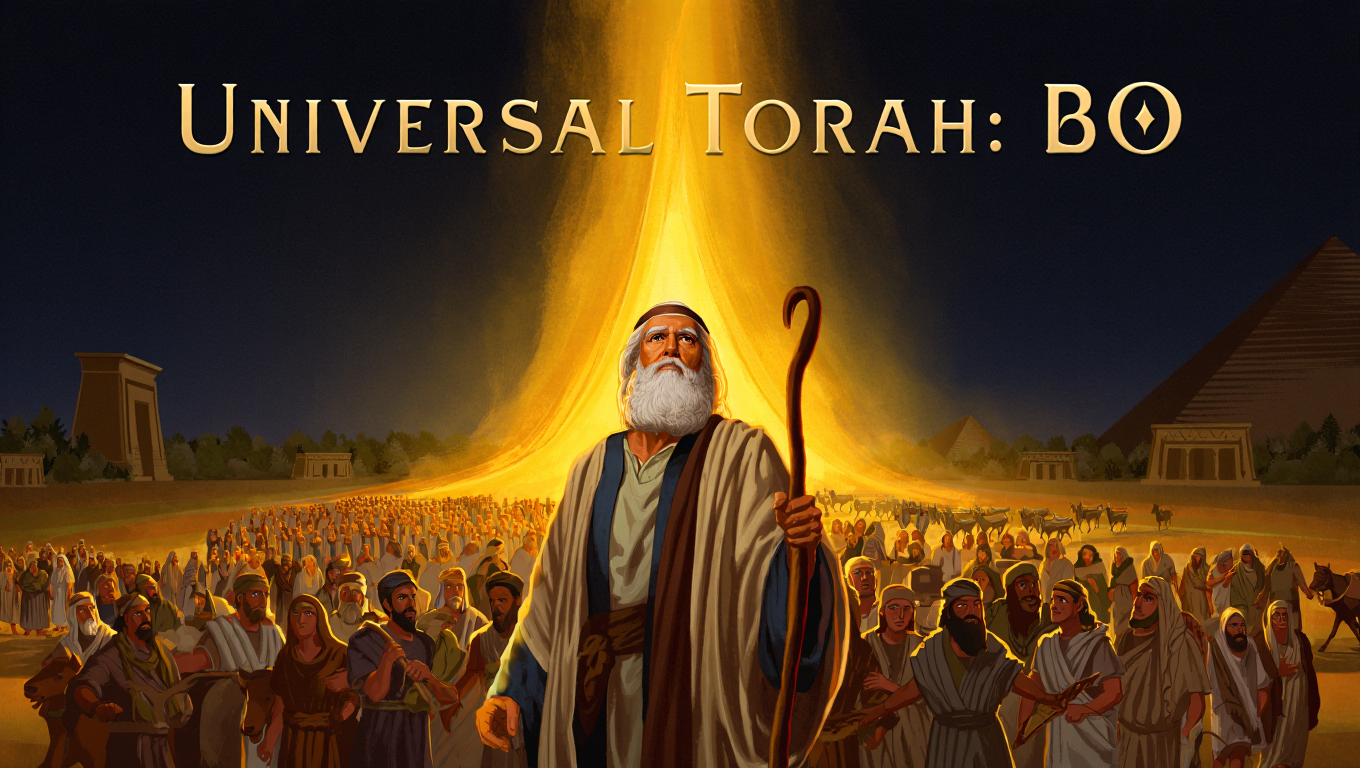The First Month/Aviv/Nissan, Part Two
The Message of Pesach in the Midst of Chaos
Part of an ongoing series entitled Hidden Sparks Beneath the Surface
By Elisheva Tavor
Just a few days ago we witnessed the tiny sliver of the new moon of Nissan, the First Month on the Biblical Calendar and now 10 days later, as we mark the close of this Sabbath day (Shabbat Hagadol on the observed Jewish calendar) we are on the countdown to Passover, yet this will be a Passover like no other for as we make our preparations for this ancient festival we are trying to make sense of our world which seems to have been turned upside down.
Indeed our world is currently in dire straits…many are sick and dying from the Corona Virus which is rapidly spreading at an alarming rate throughout the globe causing a Pandemic of gigantic proportions.
Along with our struggle to keep our head above water and maintain our faith, many of us may have questions about Passover… in light of our current situation is it even relevant for us today? The answer is a resounding YES! Let’s take a few moments for some questions and a bit of background so as to understand its powerful message for us as both individuals and as a global community…and in so doing discover some of those hidden sparks beneath the surface!
What is the Connection Between the Moon’s Renewal and the Exodus ? The connection is of course PASSOVER! But in order to make it our own and bring it down to a personal level, each of us must first take stock of where we are. As we go through the Seder, we can look backwards not only to that first Passover over 3300 years ago and strive to put ourselves into the minds of those Hebrew slaves; but as we do, we must take a look at ourselves to discover our own Mitzrayim and then go forward as did the Children of Israel when they came out of Egypt and were afforded a miraculous crossing of the Red Sea. With these things in mind, we too must step out and go forward. As Rabbi Lord Jonathan Sacks says, we only see the Providence of HaShem as we look backwards, but we must live our lives forward.
Back to the Beginning Going all the way back to the Creation, we find in Gen 1:14 “And G-d said, Let there be lights in the firmament of heaven to divide the day from the night and let them be for signs and seasons and for days and years.” The Hebrew word used here for sign is ot. An ot is a stamp, a seal, a reminder to help us keep in touch with our Creator. In His infinite wisdom HaShem knew that we would need many signs, otot… many reminders to enable us to remain close to Him. Through these signs, He continually calls us to Himself in covenant relationship.
The Mo’edim, Mikra Kodesh – The Festivals, Holy Convocations Not only does HaShem give us many otot, signs, He also gives us special times that we are to meet with Him. We see that HaShem placed the lights in the firmament of heaven, not only for signs, but also for seasons. The Hebrew word used here for seasons is mo’edim or appointments, festivals. We read in Leviticus 23:2 that that these festivals are called “Feasts of HaShem, mikra kodesh, holy convocations. HaShem refers to these festivals as “My feasts.” When we come together with kavanah, heart felt intent, to celebrate His feasts at His appointed times, His mo’edim, we bring honor to Him and He blesses us with His Divine Presence and draws us close to Him. In His infinite love He provides us with many opportunities to be drawn and re-drawn over and over again into holy relationship with Him.
The Sabbath was the first festival that HaShem made holy, kadosh. (Lev. 23:1-3).The Feast or Festival of Passover is the next. (Lev. 23:4-5). In Exodus 12, we are given the account of the very first Pesach, a wonderful festival that we celebrate under the light of the full moon from year to year.
The Message of Passover “Draw out and take for yourselves sheep for your families and kill the Pesach offering.” (Shemot, Exodus 12), this is to say, Withdraw your hands from idolatry, take for yourselves, sheep, slaughter the gods of the Egyptians and make a Pesach offering’ In other words, “Withdraw from idolatry and cleave to the Mitzvot.’(Yalkut Bo 206)
What is the message of Passover? It is freedom, redemption, new birth, new life, moving from darkness into light…but not without a price. Our ancestors of old paid the price, first when they were enslaved in Egypt, Mitzrayim…and many times thereafter throughout history. The enslavement continues to this day, both for the Jewish people and those that have attached themselves to them up to and including this very day.
Many of us have spent our lives with false beliefs and fears which have in the past entrapped us, strangled us and entangled us. Then we found Torah, Baruch HaShem, and we were set free! Yet the struggle continues as oftentimes we have carryovers that unconsciously seep into our newfound Torah faith.
Passover/Pesach, the Festival of our Freedom sends us a message to wake up, to remember…to remember our affliction, and go forward and be free…the promise of freedom is right at our doorstep, but it is up to us to release ourselves, but how? We must with bitachon (trust) take the plunge like the Children of Israel did…take the plunge into the sea and follow the path through it…not around it!
Mitzrayim – Breaking Out! Rabbi Donnel Katz says that we are in exile; and when we are in exile we are not totally conscious. It’s as if we are on auto pilot. Being in exile, he says is living consumed by fears, false pretenses and things that are not important. When we are unconscious, we don’t know that we are unconscious, so we are living a lie. We are actually double-bound when we are in this condition. The Hebrew word for Egypt is Mitzrayim which means a narrow, constricted place. It is spelled with a double mem, a letter which in the beginning of the word is slightly open, but at the end of the word it is completely closed, as if to indicate that once we are in this place, we are trapped!
We must break out! Again we ask ourselves the question, but how do we break out? HaShem says that He brought us out to bring us in…to bring us in not only into the Land, but into connection and relationship with Him because His ultimate purpose is to Shechan… to dwell within us…in our midst. In Exodus 25:8, we read HaShem’s promise to His people, וְעָשׂוּ לִי, מִקְדָּשׁ; וְשָׁכַנְתִּי, בְּתוֹכָם“And let them make Me a sanctuary, that I may dwell among them.”
We each have a purpose, but in the day to day living of our lives, we often forget WHO we are, and WHAT is really important. We need a wakeup call and sometimes that only comes with a jolt… when we reach rock bottom! For some of us, this current world situation is our wakeup call…some have said that it is a “wakeup call for the world”…a wakeup call to do t’shuvah (repent/return) to HaShem, our G-d and Creator. “Return to me and I will return to you,” implores HaShem..
As difficult as it is, it is actually a hidden blessing to be in that condition because we then begin to realize those things we weren’t aware of before. We are broken…yet we are in a good place because we are on our way to becoming more conscious, to discovering those hidden sparks beneath the surface and to grow!
We are unable to change until we first come to the realization we are in exile. During exile, we forget that we have a destiny, a Divine purpose. We easily become consumed by our negative thought patterns and our habits that have become second nature…habits that entrap us and inhibit our growth, but we must not remain stagnant, we must step forward and break out, break out of our comfort zones. Considering our current world situation, I don’t believe any of us are still in our comfort zones!
Passover is a time when we can look back and see the mighty workings of the Creator amidst all odds. It is a time when HaShem can show us what is possible if we just open our eyes and our consciousness and walk forward in bitachon (trust). The Kotzker Rebbe (Rabbi Menachem Mendel of Kotz) quote “There is nothing as whole as a broken heart!” In Psalm 147, we find the comforting promise that HaShem not only “builds up Yerushalayim, but that He gathers together the outcasts of Israel, He heals the broken-hearted and binds up their wounds!” And as if that is not enough, the text continues, “He counts the number of stars. He calls them all by their names. Great is our G-d and of great power!” What an amazing concept! The same G-d who creates the stars and calls them by their names is the one who binds up our broken hearts!
Passover – Past, Present, and Future There have certainly been lapses in the past 3500 years as far as the Jewish people keeping Passover, but perhaps this year it will most likely be more widely observed than it has been in many years…and it will be different. Instead of large communal gatherings, people all over the world will be celebrating Passover in their homes either alone or with only a few family members. But none of us are really ever alone. Throughout the Torah, we read the heartfelt cry of our Creator to us, “Return to Me and I will return to you.”(Malachi 3:7, Zechariah 1:3)
Whether we will be doing a traditional Passover Seder or simply reading and discussing the text from the Book of Exodus, it is important to keep in mind that HaShem had an order and a purpose for ordaining and naming this festival to be observed in every generation, dor v’dor, for all time. It was to be a memorial and a night of watching, a night to commemorate HaShem’s Passover. In Hebrew, it is referred to as Pesach, passing over, (actually skipping or jumping over) the houses of His children who followed His commandment to place blood on their doorposts, thus sparing their firstborn sons from death (Exodus 12:24-42).
There is a lesson for us in this and that is that we must acquire the art of skipping, leaping, jumping over the obstacles which are confronting us…we must take a giant leap of emunah/faith and move forward towards our goal…especially in the current global pandemic we are currently facing. And with this giant leap of faith, we must also skip over negativity…first in ourselves and then in others. In practicing this, we are able to temper our judgmental tendencies which drag us down and can become better equipped to emulate HaShem and show compassion to our fellow.
The Seder –The Order, the Hagaddah and More When you ask an Israeli how they are, they will reply “B’seder!” We usually take that to mean they are okay, but it means much more! “B’seder” literally means that “everything is happening according to an order, like the Seder…according to a purpose!
And that brings us to the Traditional Passover Seder and the Haggadah, the guide to the Seder. Haggadah in Hebrew means to “draw down!” So as we participate in going through the Passover Seder, we are “drawing down” its order. But the challenge here is not only to draw down, but to Kabbalah, to receive… to receive, to take it all in and to incorporate its lessons into our lives…beyond the Seder!
Layla Seder – the Night of Pesach and Beyond The traditional Jewish Seder begins and ends with joy…from the Kiddush, the 1st of 4 cups of wine to the Hallel and the 4th cup of wine. In between our joy is mixed with hints of bitterness as we partake of the unleavened bread of the matzah and go from the bread of affliction or slavery to the bread of hope and freedom.
There are 15 steps of the Seder, steps which correspond to the 15 steps of ascension going up to the temple, the 15 steps of holiness. Each step is integral to the whole. If you will be participating in a traditional seder this year, I would encourage you to take a look at the Haggadah prior to the Seder and review these steps for yourself and follow Rebbe Nachman’s suggestion.
He suggests that we should spend some time endeavoring to find a part of the Seder that has a special meaning for you individually and when you find it, focus on it…let it sink into your consciousness and discover how you can incorporate its hidden meaning into your daily life
Personal Reflections and Encouragement On a personal note I have taken Rebbe Nachman’s suggestion and incorporated it through the years and have found several parts of the Seder than continue to have a special meaning for me. I will only describe one here. It is the Hillel Sandwich. We make a sandwich and eat it…it is a physical act, but with deep spiritual and very practical meaning for it represents I believe the very key to living a productive life. We take a piece of matzah, put some maror (horseradish) on one end and some charoset (apple, honey and nut and sweet wine or grape juice mixture) on the other end. As we take a bite, the horseradish gives us a burning sensation both in our mouth and nose to the point that it can seem difficult to breathe (be careful as to not overdo this part). The key is to keep eating, because the next bite is the charoset and it is the antidote. All the pain and bitterness and hurt is then alleviated as we press on through to the sweetness, the joy.
So it is with our lives. We can never give up, we must persevere! Our G-d and Creator is always with us and will see us through…even in the darkest moments, for it is in those darkest moments that He is preparing the light that will break through in our lives! In the beginning, when He created the world, there was darkness and chaos…then He flooded it with Light and order! This is the key…the journey from darkness into light…it is our journey. It may seem like a roller coaster ride, but it is b’Seder…it is all okay for it is all following an order!
The Call of HaShem to Us – קרא נא –C o r o n a!
HaShem has been calling out to us since the beginning of time…it is time for us to call out to Him, and in the midst of this global pandemic with the Corona virus spreading across the globe, what better time but now!
Rabbi Michael Skobac recently shared a very captivating observation pointing out that the virus is called Corona, in Hebrew it is spelled קרא נא which means “Please call out” (to Me). Ranah is a soft “please.”
In addition he brings forth some thought provoking information “The virus is also called Covid-19. The word Covid shows up in a Mishnah at the beginning of Masechet Berachot. It says there, אין עומדין להתפלל אלא מתוך כובד דראש –a person should not get up to pray unless he has covid rosh. What is covid. Rashi says it means humility, recognizing we are nothing and we can’t do anything without HaShem. We need to call out to Him with covid (humility).And what should we call out? 19- the 19 berachot of the Amidah.”
Whether we are praying the prescribed prayers in the siddur including the Amidah or praying in our own words, the point is that HaShem implores us to call out to Him…and humility is the key…
“If My people who are called by My name, shall humble themselves, and pray, and seek My face, and turn from their evil ways; then will I hear from heaven, and will forgive their sin, and will heal their land.”(II Chronicles 7:14)
In the coming days as we continue to prepare our hearts and our homes for this awesome Season of Pesach, may we think on these things and remember that it is a mo’ed, a Divine appointment with our Creator set from the beginning of time.
Its message of redemption and deliverance that calls out through the ages now comes full circle to us once again…may we let it penetrate deeply into our innermost beings…and as a result discover even more of those Hidden Sparks beneath the Surface, those sparks of wisdom and insight just ready for us to embrace and propel us forward through these difficult and heartbreaking times as we look forward to the Great Coming Redemption promised through the prophetic texts over and over throughout the Tanakh (Jer. 16:14, Zech. 1:3, Mal 3:7). One of the maxims of Chasidic teachings is that “Joy breaks boundaries!” May we go forth in joy in the midst of our present suffering and call out with one voice!
La Shanah haba’ah b’Yerusalayim!
Next Year in Jerusalem!!!
by Elisheva Tavor 11 Nissan 5780


